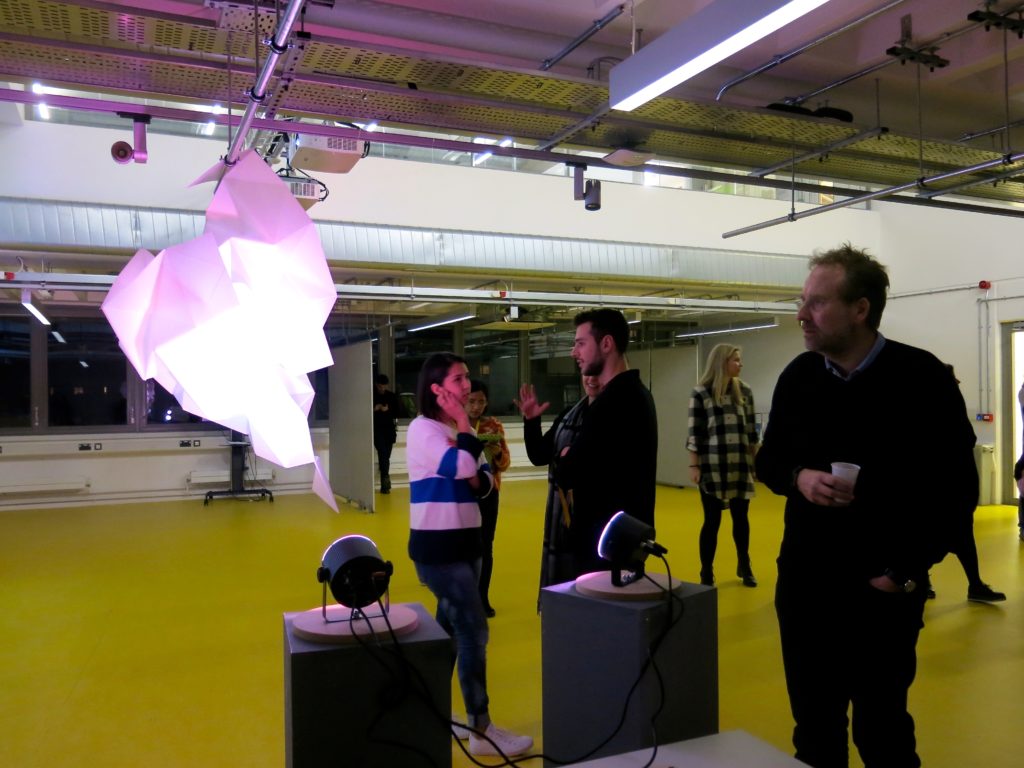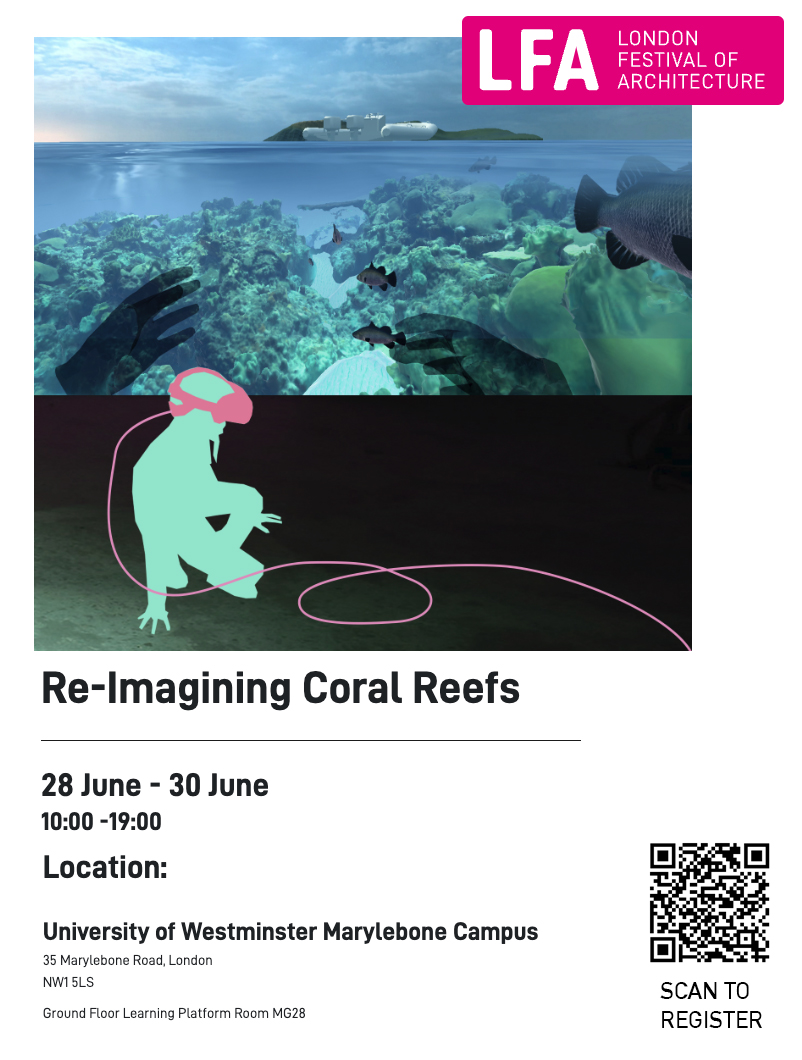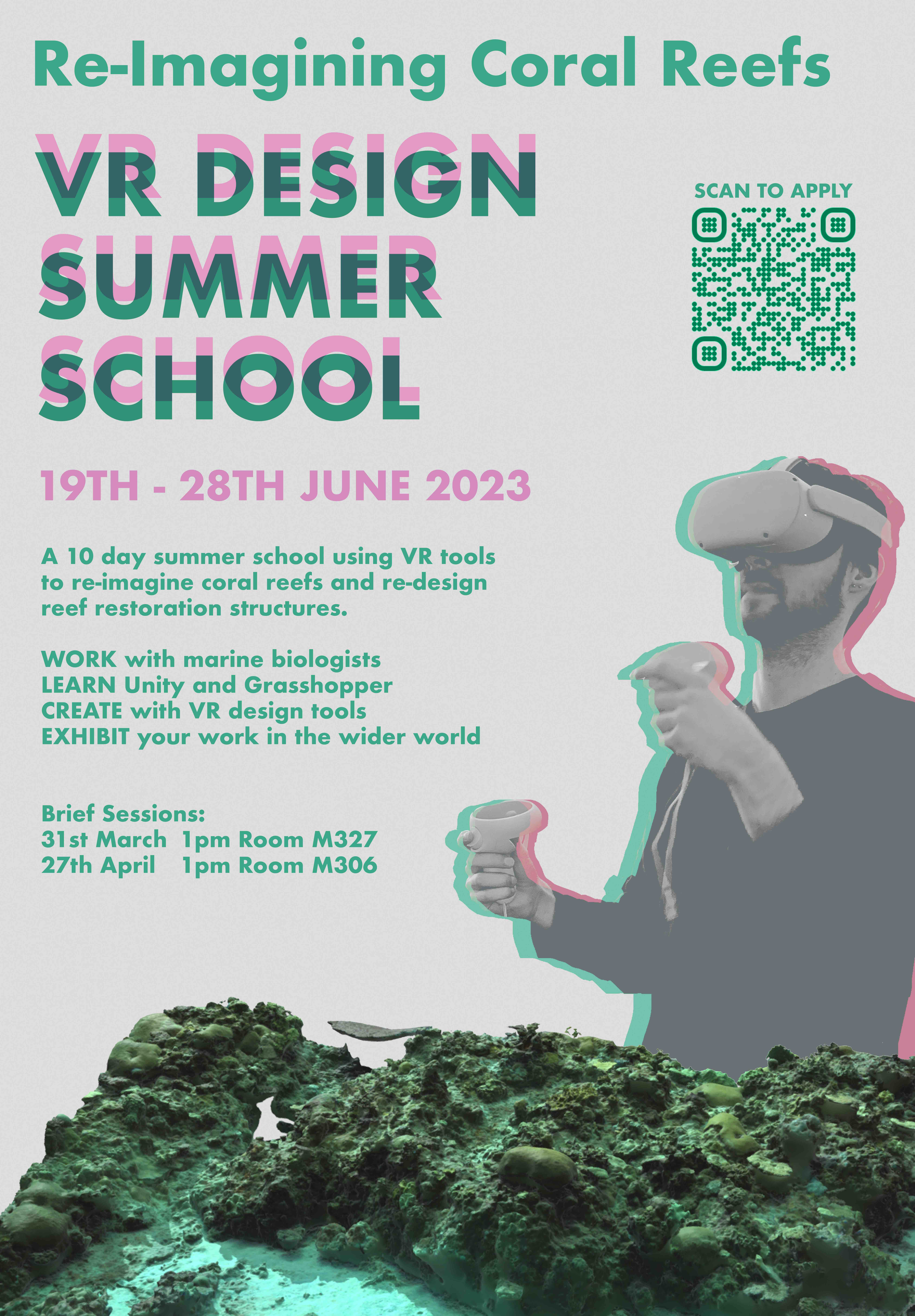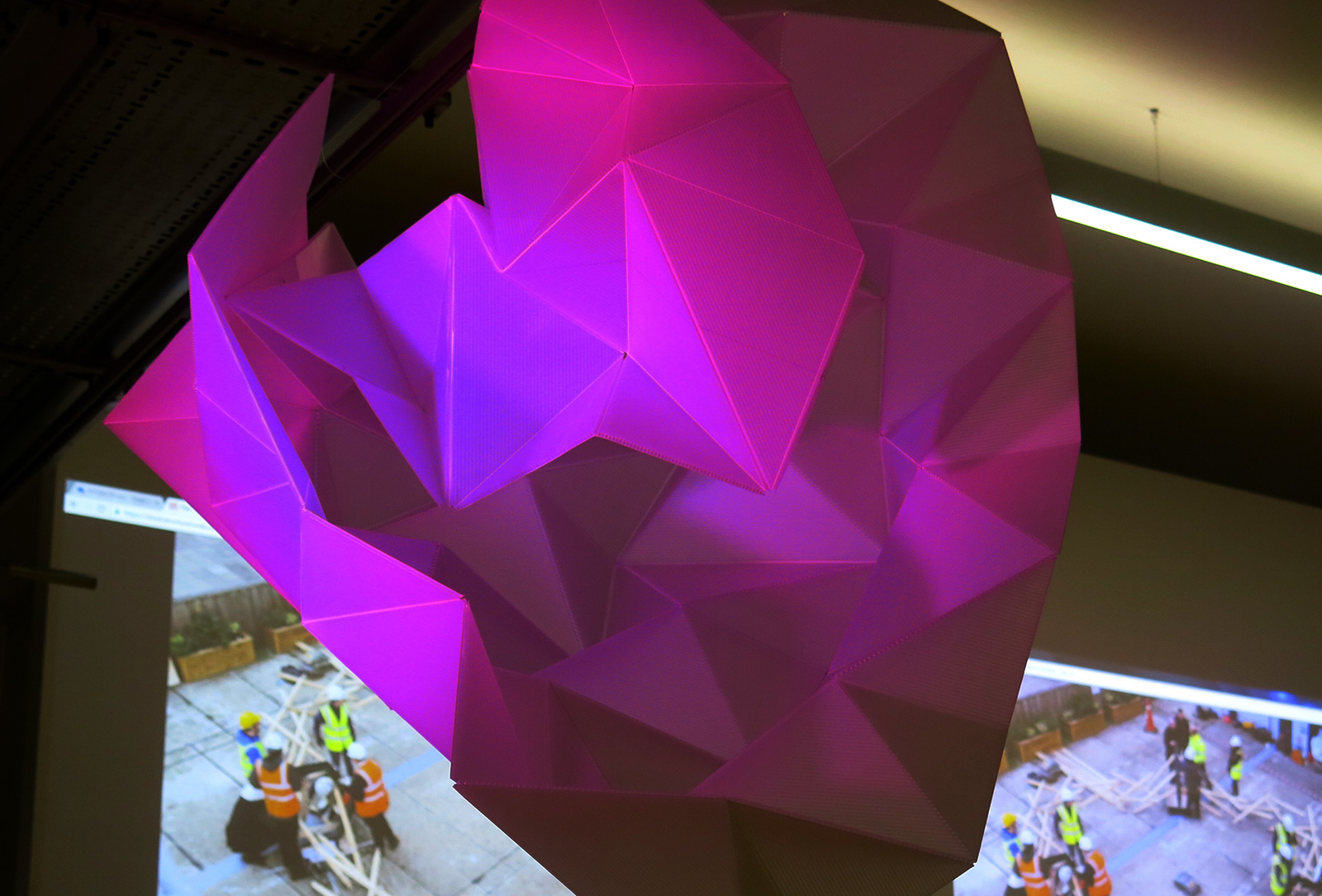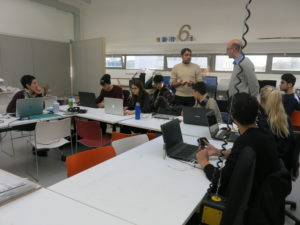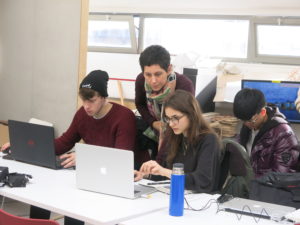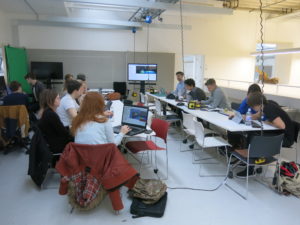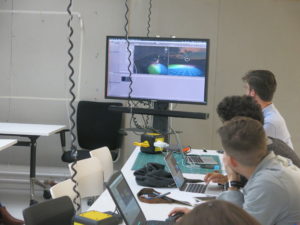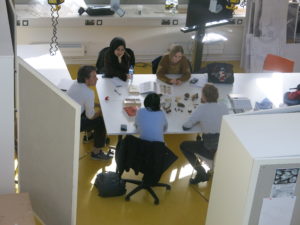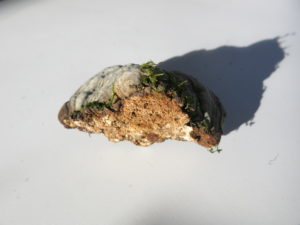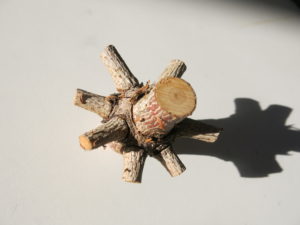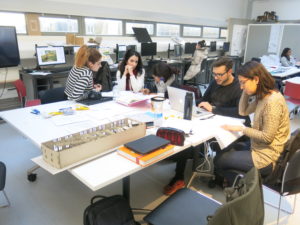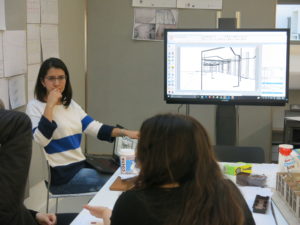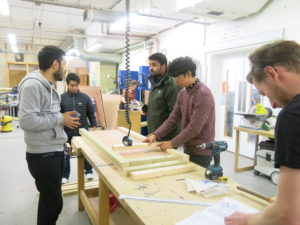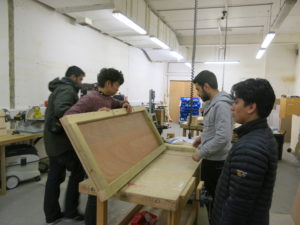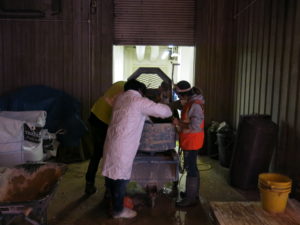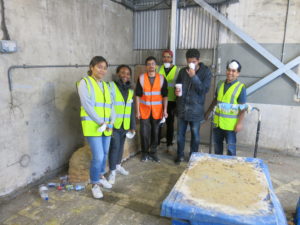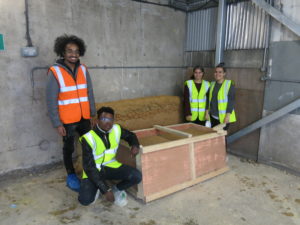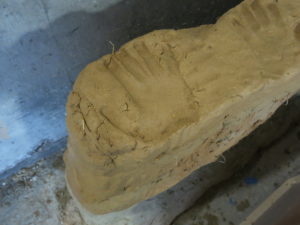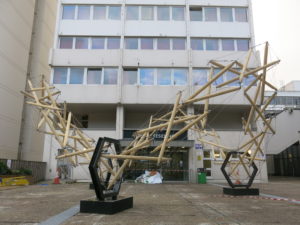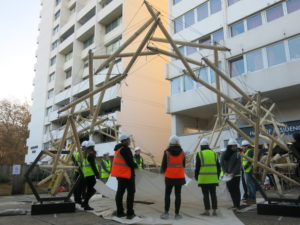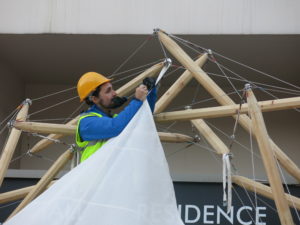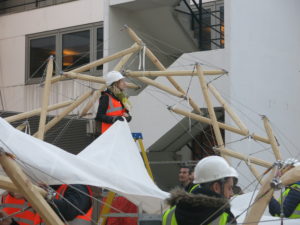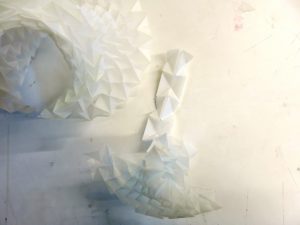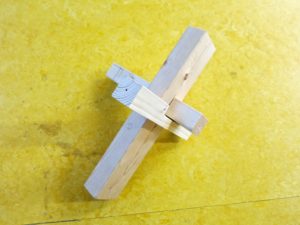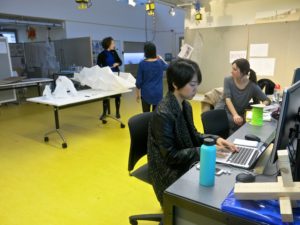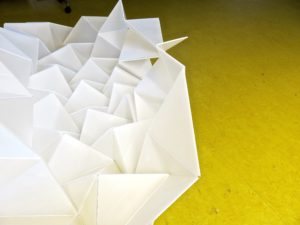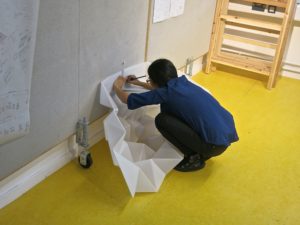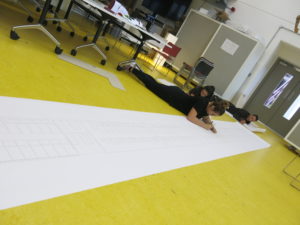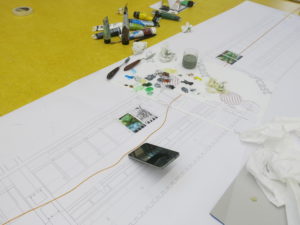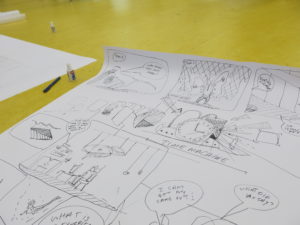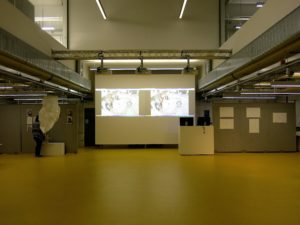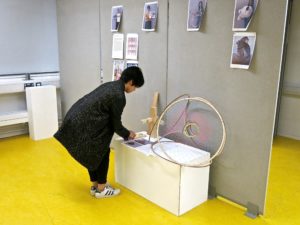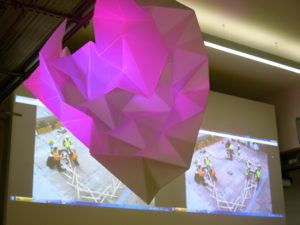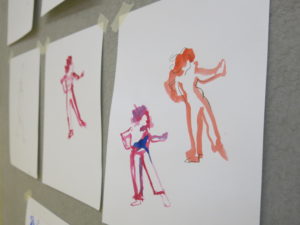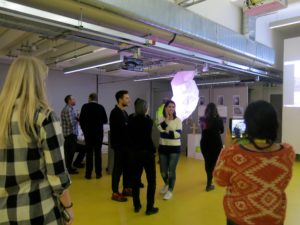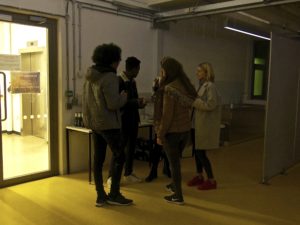Play is our brain’s favourite way of learning. (Diane Ackerman)
Following the success of previous year, PLAYWeek 2 was back in November 2016, with more than ten workshops on offer. The play-dates took place on the 16th, 17th and 18th November, on Marylebone campus and various locations around the city.
Judging by the voting results, students were keen on learning new skills, either through the use of new software and technologies, or through more hands-on approach in the FabLab.
An Introduction to Programming Light and Colour, organised by Richard Difford and Jonathon Hodges, offered an opportunity to explore the creative possibilities of Processing and Ardunio with DMX lighting to design and prototype architectural lighting (cover image). The final product was definitely a crucial component which helped lift the mood of the final exhibition, and brought a party vibe to the end of the PLAYWeek.
Digital Traces workshop organised by Stefania Boccaletti and Roberto Bottazzi was an opportunity to delve into the world of Big Data, machines, algorithms and numbers, where the students themselves were being the subjects of investigation. The information stored on students’ hard drives, primarily images, were used as raw material which was mined and eventually visualised with a help of Grasshopper and ImageJ free software. The aim of this two-day workshop was to give students a light and fun introduction to the issues and opportunities engendered by Big Data, not only through the use of software, but also through discussions and presentations.
For those with a penchant for VR, gaming and non-linear immersive experiences, Shot Disco workshop, lead by Gabby Shawcross and Ross Cairns of the design studio The Workers, was an ideal place to learn more about gaming engine Unity. The students were given a chance to produce their own interactive environment with dance floor, dynamic disco lights, smoke and mirrorballs.
The use of different softwares was crucial in Art Forms in Nature workshop, lead by Harry Paticas and Tom Raymont. Inspired by a publication “Art Forms in Nature” by Ernst Haeckel, participants of this workshop were invited to look for patterns of complex order in natural objects, such as shells, bones and seed-cases. Working with 20 unusual natural artefacts and using a 3D scanning, drawing and modelling tools by the end of the PLAYweek students have produced a shared library of digital models and an exquisite drawing each.
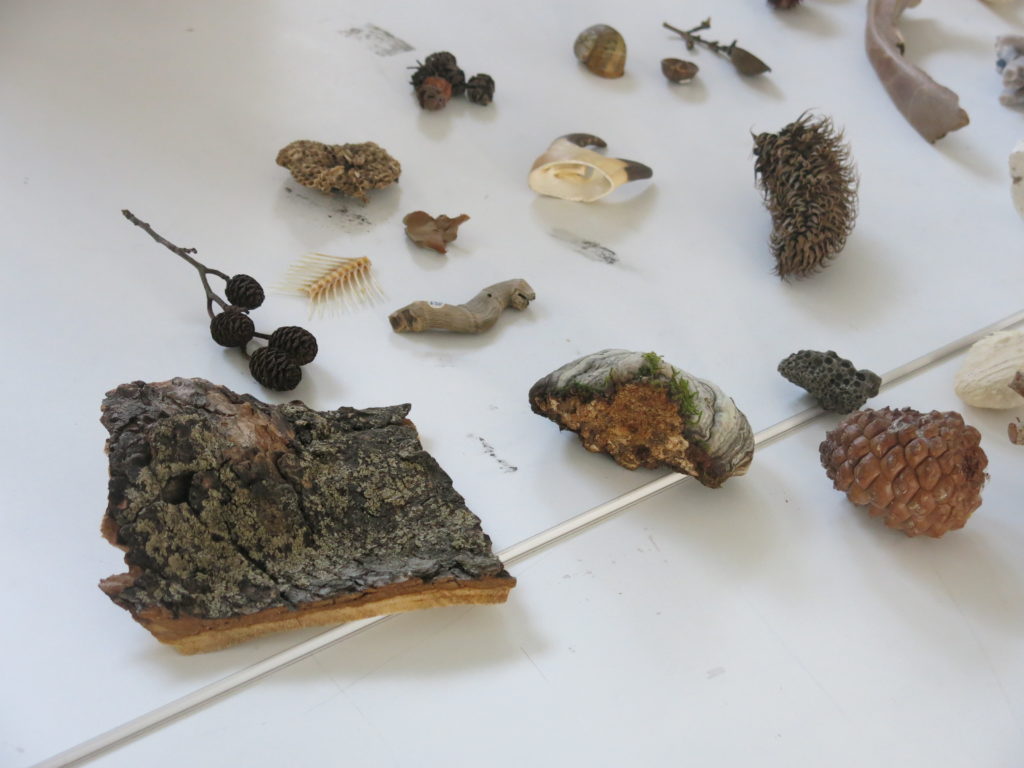
Lara Rettondini, Matt Haycocks, Yota Adilenidou, Sue Phillips, Allan Sylvester and FabLab staff joined together to organise the Design of Display / Display of Design / Play at the V&A workshop where students were given an opportunity to work with the V&A Museum as a client, to address an external agenda and specific client requirements. Workshop started on Wednesday at the V&A Museum where students met Johanna Agerman Ross, the Curator of the 20th Century and Contemporary Furniture and Product Design and had a chance to engage with the space in which they were to intervene. Thursday and Friday were studio days where the students worked within three groups on different proposals, which were presented on the last day of the workshop. Due to the complexity and size of the project the group aims to carry on working on it as an extracurricular activity over the coming months.
Those who were eager to get their wellies out way before the festival season went for the Earth Building workshop at the EnvLab. Working with rammed earth, by Friday the participants were very proud of their newly built bench.
Quite a spectacular structure was built and dismantled by the participants of Tensegrity workshop, lead by Geoff Morrow, Gavin Weber, Will McLean, Pete Silver and Scott Batty. Previously showcased at Vision London this lightweight pavilion with a tensegrity ring and tensile fabric membrane was assembled and then taken down at the Pod during this two-day workshop.
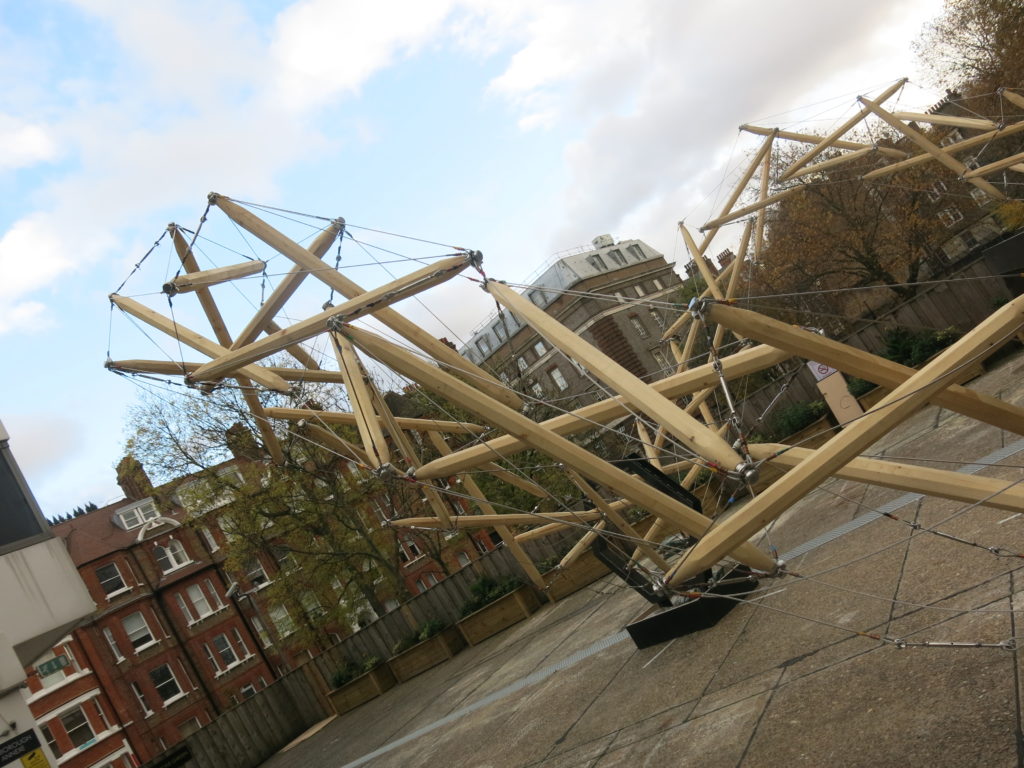
Maria Kramer offered students an opportunity to develop their own briefs and projects in her Your Project workshop. Experimenting with different shapes, sizes, materials and lighting, participants were encouraged to try out different solutions and options to strengthen their design ideas.
Some of the activities took place off campus, such as Lantern Walk with Harry Charrington, where the students met at the Blackfriar armed with their sketchbooks, and were taken on a “good walk through our city”.
Elly Ward from Ordinary Architecture gave a private tour of the exhibition “Origins: A project by Ordinary Architecture” on show at the Royal Academy. At the Origin Myths one-day workshop participants were encouraged to embrace their own erroneous theories, misunderstood theories, personal mythologies and speculative wild-goose chases to invent new origins of architecture. Their drawings and models were exhibited and presented at the end of the day.
And while the workshops, walks and tours were underway, an alternative vision of the PLAYWeek was being created by the participants of the Drawing PLAYWeek workshop. Lead by Alessandro Ayuso, Mike Guy and Ro Spankie, this group explored how to depict inhabitation in architectural drawings, and celebrate the inventiveness and liveliness of the students and staff’s inhabitation of the building, by ‘populating’ the drawings.
On Friday evening participants and staff gathered at MG14 to exhibit some of their works and celebrate the end of a productive week.
